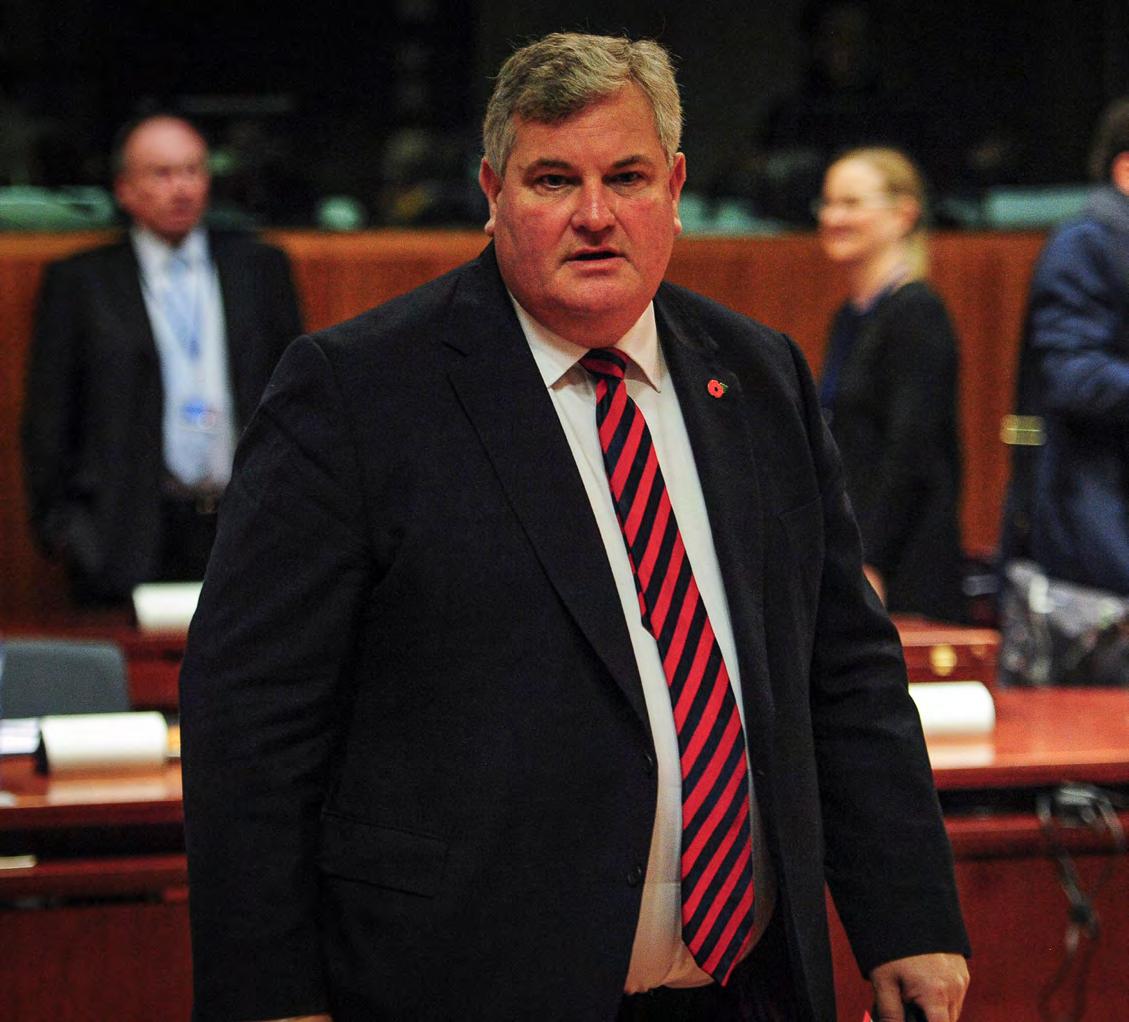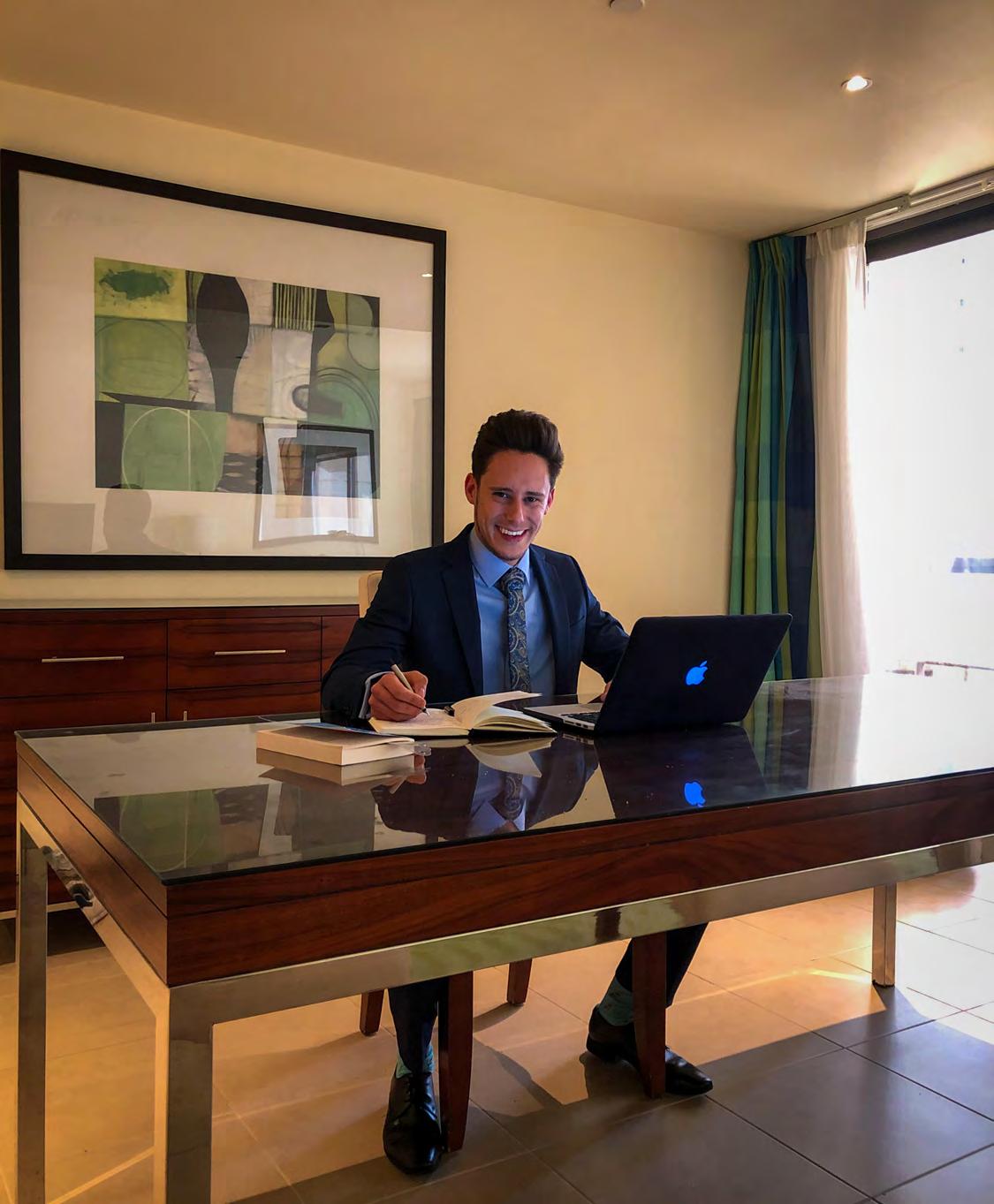
7 minute read
Interview: Lord Mark Price
by CMI_
Interview_Ann Francke OBE Photography_Will Amlot
Meet Lord Mark Price, CMI’s new president. The son of a small business owner, Mark initially wanted to be a professional golfer but started his career at John Lewis & Partners. He spent 34 years there, eventually becoming managing director of Waitrose. Today, he’s the founder of WorkL, a technology startup that uses data to throw light on the issues around employee engagement.
Mark is driven by the principles of fairness, equality and healthy competition. He is a firm believer in the value of self-reflection, which he practises every day.
In this interview with CMI’s chief executive, he talks about his life and management philosophy, as well as the issues raised by CMI’s recent ‘Management Transformed’ study
FORMATIVE INFLUENCES & MANAGEMENT PHILOSOPHY
Work hard, play hard
“My dear old dad had a wholesale business and from the youngest age I remember working: unloading lorries, getting out to visit customers, answering the phone. It imbued in me from the very earliest stage that you get up and you get to work.
“As a youngster, I loved sports. I played football for Crewe Alexandra Juniors and for my school. I played rugby too, and I was a reasonably good golfer. In fact, I wanted to be a pro golfer.
“So, of course, when I entered the business world, I loved competing, competing against other departments within the John Lewis partnership, competing against other competitors, winning market share. That gave me a real buzz.”
Everybody's opinion matters
“My dad was a preacher at the weekends, and he taught me some important lessons about everybody being equal. Nobody’s better than anybody else, so you should respect everybody’s point of view. That was a great training for when I went into the John Lewis partnership, which is owned by everybody in the business.
“It’s really important to listen to everybody’s point of view. It’s always legitimate because it’s born from their experience.
“I suppose those things combined have really driven my approach and my belief that a decentralised model of management helps the individual flourish, provided they have the confidence to do it, the support to do it, and the training to do it.”
You're never the finished article
“Throughout my business life, every night, I write a short diary entry about what I got wrong and right, and what I’ve learned. I have never felt that I’m the finished article. An approach that might have worked a week ago is not necessarily the best approach. I constantly reflect on the circumstances around my actions and decisions.”
COMMUNICATION, TRANSFORMED
“The lesson I learned from 34 years in the John Lewis partnership was that sharing information is the single most important thing to do to help people feel engaged.
“And at the moment it’s almost impossible to overcommunicate.
“I’m sure some people will say, ‘My goodness, there’s a lot of Zoom calls and there’s a lot of communication’, but what CMI’s ‘Management Transformed’ study shows is a peak of people at the moment feeling better informed and better looked after. They feel more empowered than they ever have.
“That’s because managers have had to change their approach. Managers have had to trust people to get on with their jobs remotely. They’ve had to give people the information they need to do those jobs.”
How can leaders look after the wellbeing of everybody, not just their direct reports?
“The job of management is to make sure that the people in their charge are very clear on their task; they have to give people the information and the resources they need to complete that task in the most efficient way. Managers also need to make sure that people are at the top of their game, and if they’re suffering in some way – mentally, physically or financially – they help them on an individual basis.
“That’s very different from the leadership of an organisation. What the leadership has to do is to set a direction.
“As a leader, you should send very tangible and visible signals that you’re going to hold your management accountable for the wellbeing of the workforce. >
Give and take
“What I tend to do is send somebody an email saying, ‘Look, I’m interested in getting this information. Let me know when you can get it back to me’, rather than saying ‘I need this by 10am tomorrow’.”

“The example you set is important. Are you communicating with people at 9pm saying, ‘I demand to have these numbers before you go to bed’? Instead, set up a regime where you make it clear that people should be doing what they need to do in order to get through this crisis without burning out.”
“Now, there are occasions when you do need the information quickly and, therefore, you’ve got to say, ‘Look, I’m really sorry to disturb you, I know you won’t be sitting there twiddling your thumbs, but I need this information pretty quickly, can you help out?’
“It’s about being with the individual. It’s about people knowing when they’re safe as opposed to feeling that somebody can get to them at any time.”
BUILDING A CULTURE OF ENGAGEMENT
CMI’s ‘Management Transformed’ study found that 49 per cent of senior leaders say their employees have been more engaged during the COVID-19 crisis. But only 27 per cent of employees themselves said they felt more engaged. How can we close the gap between the perceptions of senior leaders and the actual feelings of employees?
“My view of engagement is that it rests on a number of things. People are engaged when:
• They’re paid fairly;
• They get recognition when they do something well;
• They have the information to do their job well;
• They have the context to understand their role within the organisation and why their part of the jigsaw is important;
• They feel trusted and respected;
• They have the resources to do their job;
• They feel that the organisation genuinely cares for their wellbeing (‘If it doesn’t, why should I care for it?’);
• They feel pride for the organisation;
• They have a good relationship with their line manager; and
• They feel the organisation is helping their career.
“The way you change a culture is by demonstrating, every day, your new values. Every manager has to follow that through. It doesn’t take six months. It takes years of repetition.
“You have to make sure that your immediate group of ten really embodies what you want to do; and they have to make sure their group of ten do the same, and then their group of ten, and their group of ten... That’s why it takes time.
“And people have got to be prepared to call each other out when the culture isn’t being demonstrated. It starts with clear vision and communication from the top down.
“I was prepared to lose really high performers to bring about cultural change. What’s interesting is that the people who succeeded them turned out to be equally high performers, but also had the cultural fit. That’s how you create the culture, because people see that you’re not prepared to tolerate when it doesn’t fit.
“I’ve always believed that 80 per cent of management and leadership is picking the right people around you. The rest is very simple.”
Finding the right fit
“Culture trumps other abilities. During my time running Waitrose, if somebody didn’t fit, then I would have a conversation with them and explain that what they were doing didn’t fit with our cultural values. And if the behaviour was repeated, then I would say to them that they had great skills and talents but those skills and talents didn’t fit with the organisation. And I would lose them.”

Skills for senior leadership
“The more senior you become in a business, the more you need to learn skills around wooing and influencing, and the less you just simply tell people what to do. In fact, that’s the last avenue you ever use, and normally you only ever use that in a crisis.
“Also, we’re terrible at recognition in the UK. On average, we praise people or thank people for a job well done once every four months. Yet we criticise either overtly or subtly twice a week.”
Manager or mentor?
“People talk about good management, but they never really say what good management is.
“To a large extent, it’s about continual coaching, about encouraging individuals to share an idea or ask for feedback or be prepared to listen to an alternative point of view.
“I’ve always been a great believer in encouraging people to develop as they go. Once you get to, say, your early 40s and somebody says, ‘I’m sorry, this job’s going’, it’s almost too late to retrain.
“I would encourage managers now in their 20s and 30s to think, ‘What more can I learn? What don’t I know that I could learn?’ You’ve got to keep challenging yourself, keep learning.”











